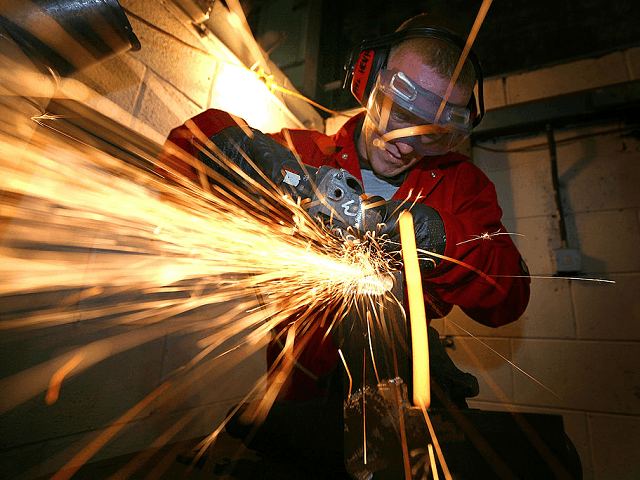As the British government releases a series of technical papers outlining preparations for a ‘No Deal’ Brexit, Remain-leaning broadcasters and press outlets are talking up economic “uncertainty” — but investments are pouring into British real estate, finance, and manufacturing.
Brexit Secretary Dominic Raab has indicated Britain will treat EU members as ‘third countries’ if Brussels refuses to agree a constructive trade deal, which would mean some additional customs checks and tariffs for EU goods — although the costs have been calculated as less than Britain’s annual contribution to the EU budget, and the extra tariff revenue would outstrip the extra costs for exporters, due to Britain’s trade deficit with the bloc.
Anti-Brexit newspapers and mainstream media broadcasters have chosen to portray the technical papers as harbingers of mass disruption, despite the fact that Britain already deals with many nations outside the EU including the U.S. on a ‘third country’ basis without issue.
Claims of widespread “economic uncertainty” by EU loyalist politicians and business leaders with vested interests have also been emphasised — but the reality on the ground seems to be quite different, with strong investment in British real estate, the finance sector, and manufacturing.
Pro-EU Bloomberg, for example, has been forced to report that “Foreign buyers led by Hong Kong billionaires and Korean securities firms spent more on the UK capital’s offices in the first half than in central Paris, Manhattan, Munich, and Frankfurt combined”, helping London to “cement its position as the No. 1 city for real estate investment from overseas”.
The Reuters news agency reported this week that the UK’s Pound Sterling currency had “extended its lead as the king of currencies despite Brexit vote”, noting “London is likely to continue to be one of the world’s top two financial centres”. Finding that forex trading in London had grown by 23 per cent in the past two years, the wire service stated this was double the pace of the nearest rival, the United States: “London has dominated the foreign exchange market for nearly half a century.”
Even Goldman Sachs, the infamous multi-national investment bank once described as “a great vampire squid wrapped around the face of humanity, relentlessly jamming its blood funnel into anything that smells like money”, has confirmed a £1.2 billion deal with South Korea’s National Pension Service for real estate in London — despite having put hundreds of thousands of pounds into the Remain campaign and persistently talking Brexit down.
British manufacturing is also performing well, in part thanks to the cheaper, more competitive post-referendum pound, with the latest Industrial Trends Survey showing output growth remains well above the long-term average, and more firms reporting stronger total order books, export order books, and volume of output than not.
The last few days have also been peppered with many individual success stories, with aircraft components manufacturer Safran Nacelles investing £12 million into new tooling and machinery so it can ramp up production, Thomas Dudley investing £10 million into a new Black Country foundry, and lightweight sports car manufacturer Caterham securing £1.15 million in funding from Spanish bank Santander to boost domestic production and support overseas growth.
Nor is manufacturing short of larger scale success stories, with mid-sized manufacturers breaking £50 billion in overseas turnover, and work underway on a £400 million International Advanced Manufacturing Park in Sunderland and South Tyneside.

COMMENTS
Please let us know if you're having issues with commenting.